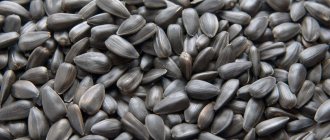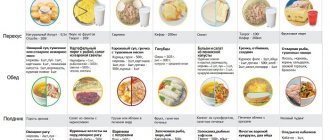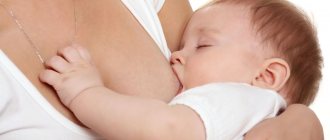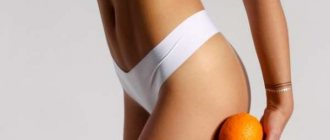Benefit or harm
Fish caviar is a valuable seafood product that contains a large amount of useful substances. It is a source of protein, lipids, essential amino acids and vitamins.
It contains:
- vitamins of groups A, B, E;
- iodine, phosphorus, potassium;
- iron and folic acid;
- vitamin d;
But like many seafood, it is very allergenic. Therefore, allergy sufferers and children need to be extremely careful with it. It is contraindicated to eat red caviar for people with heart and kidney disease, high blood pressure, and edema. These restrictions are associated with fluid retention in the body due to the high salt content. Artificial preservatives (and seafood production cannot be done without them) are not beneficial even for an adult, not to mention a child. For example, sodium benzoate is a strong oxidizing agent and can cause urticaria and dermatitis. Therefore, it cannot be said unequivocally that aromatic store-bought caviar is a healthy product.
The main features of a quality delicacy are:
- Compound. In addition to caviar (grade 1 salmon), salt (no more than 6% of the total mass) and preservatives (usually sorbic acid or sodium benzoate) may be present.
- Packaging – tin or glass containers. When shaking the can, the product should not gurgle.
- Labeling – the label must contain information about the date of manufacture, terms and conditions of storage, address of the manufacturer, GOST or TU number.
- Appearance – eggs should be the same size and uniform color, whole, without liquid. The presence of greasy oil stains and a strong fishy smell indicates a low-quality product.
- Price – a natural delicacy cannot be too cheap.
Composition and calorie content of caviar: benefits and harms
The unique composition of caviar is due to several factors.
Energy value
It is known that a nursing woman should increase the calorie content of her daily diet by 350-400 kcal in order to provide energy for herself and her baby through breast milk. Caviar is a source of complete, easily digestible animal protein, and its calorie content is 25 kcal per 100 g of product. Therefore, 2-3 teaspoons of this product will be a good addition to a serving of vegetable salad.
Chemical composition
Microelements:
Sodium, potassium, calcium are the main components of the internal media of the body (blood, lymph, intracellular fluid).
Magnesium is involved in more than 300 enzymatic reactions, carbohydrate and lipid metabolism, in the process of protein synthesis, transmission of nerve impulses, and is an essential component of bone and tooth tissue [1].
Zinc plays a significant role in the synthesis of hormones responsible for the growth of the body (insulin, corticotropin, somatotropin).
Phosphorus, together with calcium, is necessary for the growth and strengthening of the skeletal system of a growing child, and is also important for a nursing mother, since under the influence of hormones in the postpartum period, a woman is susceptible to the development of hypocalcemia.
Iron, the lack of which leads to the development of iron deficiency anemia, frequent viral diseases and delayed neuropsychic development, fatigue and emotional instability.
Selenium, the main role of which belongs to participation in the processes of antioxidant defense of the body.
Iodine is essential for the normal functioning of the thyroid gland, as well as for the development of brain cells.
Vitamins:
- vitamin A (including in the form of beta-carotene) is necessary for the normal development of the newborn’s visual organ and the formation of immune system factors;
- vitamins B1, B2, B5, B6 and B9 are important factors in maintaining homeostasis, muscle tone, nervous activity, and the construction of nerve pathways;
- vitamin B12, in addition to participating in the functioning of the nervous system, is one of the factors maintaining normal hemoglobin levels in the blood;
- vitamins C and E are essential participants in the immune response and antitumor protection;
- choline is a precursor of one of the most active neurotransmitters - acetylcholine, without which normal nervous activity is impossible;
- vitamin D is one of the most important participants in the work of the endocrine and nervous systems of the body; its deficiency leads to the development of rickets in young children;
Omega-3 – polyunsaturated fatty acids:
Eicosapentaenoic and docosahexaenoic fatty acids are essential, that is, they are not produced in the body and enter it only with food. These acids prevent thrombus formation on the walls of blood vessels (which is important for women in the postpartum period due to changes in hemostasis during childbirth) and promote normal cardiac activity. It has also been found that normal levels of polyunsaturated fatty acids in the body are necessary for normal intellectual development [2]. People whose diet contains sufficient amounts of these acids are less likely to die from diseases of the cardiovascular system [3].
Can nursing mothers have red caviar?
There is no strict ban on red caviar for a nursing mother. However, you should introduce it into your diet with caution. You should not eat fish and seafood in the first month after childbirth. This can lead to allergies, colic, and increased gas formation. And if a newborn has atopic dermatitis or other allergic rash, it is prohibited to eat such products (until breastfeeding is stopped).
A high salt content can also disrupt lactation. It leads to a deterioration in the taste of breast milk. As a result, the baby may refuse to breastfeed.
Read about what to do if your breast milk turns salty.
For breastfeeding, it is better to administer caviar six months after birth. By this period, the functioning of the newborn’s digestive system is normalized. You should try seafood in small doses - 2-3 balls. Within two days, you need to observe whether the new food has caused an allergic reaction in the child. If there are no manifestations, you can safely eat caviar. Naturally, you should not abuse it! It is recommended to eat no more than 60 g of seafood per week.
How to introduce red caviar into the diet during breastfeeding
Let's look at the basic principles of introducing a delicacy into a mother's nutritional diet while breastfeeding:
- You can start consuming red caviar no earlier than the baby is six months old, in extreme cases - at least 4 months.
- Carefully monitor your baby's body's reaction to the renewed mother's milk for 48 hours. If an allergic reaction does not appear, but alarming symptoms from the digestive system are detected - a violation of the frequency and fractional composition of stool, excessive gas formation, colic, vomiting, then this is also a sure indication that the baby’s body does not accept the product.
- First, eat a few eggs, preferably at breakfast. If the baby’s body does not show an allergic reaction or other negative symptoms, then the daily use of the product can be increased to 15 grams. It is important not to excessively consume caviar; the maximum amount is no more than 4 teaspoons of red caviar in 7 days.
- Do not consume the delicacy daily. In one or two times over 7 days, the body receives a full complex of substances.
- When introducing a new product into the nutritional diet of a nursing mother, all other products must be tested and familiar.
- A mother breastfeeding her newborn should consume high quality foods.
Even if the toddler’s body has not shown an allergy, this does not mean that the food introduced is easily digested. The baby’s body can work at maximum stress, removing toxic substances from the body. Don’t rush into introducing caviar into a nursing mother’s food supply!
The delicacy is consumed in the form of sandwiches; caviar tartlets have become widespread, this is due to the lower level of carbohydrates. Caviar is well suited for adding as an edible decoration to salads and sauces.
Black caviar during breastfeeding
Black caviar, like red caviar, is rich in vitamins. It contains proteins, fats, lecithin, trace elements and minerals. The high content of organic iodine helps to quickly normalize thyroid function after childbirth.
However, you should try black caviar with caution, since cases of food allergies are common. When breastfeeding, it should be introduced into the diet six months after birth. You should try the delicacy in small doses - no more than ¼ teaspoon. If the baby does not react, the amount is increased to a teaspoon once a week.
It is very important to choose the right caviar. It must be a quality product that meets a number of requirements:
- sold in a tin or glass jar;
- the eggs should be intact, elastic and crumbly;
- the delicacy should have a bright color and a pleasant fishy aroma;
- proven, well-known manufacturer.
Unfortunately, there are many fakes on the market. Counterfeit caviar may be spoiled. Sometimes poachers use dangerous preservatives that are prohibited in Russia. They can cause severe poisoning. Therefore, never buy seafood from hand, on the Internet or in dubious stores.
Imitated, that is, artificial caviar is made from protein fillers (for example, soy), gelatin and flavorings. Sometimes seaweed is used. There is little benefit in such a dubious delicacy; it is not recommended for breastfeeding due to the risk of allergies in the child.
How to select and store caviar
Store shelves are overflowing with fakes. Such products contain dyes, preservatives and other chemical additives that are extremely harmful and dangerous for babies. Therefore, it is important to choose a natural product.
When choosing, carefully study the composition, date of manufacture and expiration date. Buy caviar from a trusted manufacturer. Remember that caviar should only be in a tin or glass jar. If it is a vacuum bag or plastic, then you have found a fake. Check that the deadline is clearly stamped on the jar.
After purchasing, pay attention to the appearance. The eggs should be the same diameter and size. If the eggs are different or the contents are a homogeneous mess, then the product is of poor quality. Do not use the product if there are greasy oil stains in the jar!
Remember that after opening the jar you can store red caviar for only one week. If it is an iron container, then transfer the product to a glass container. Remember that iron oxidizes when exposed to air. Caviar can only be stored in the refrigerator. Try to seal the package tightly and tightly.
Poor quality and spoiled products are harmful to a nursing mother and baby! They cause poisoning, which will have dangerous consequences.
An alternative would be squash caviar. Of course, this is not such a delicacy. But the nutritious and tasty product is safer for babies. In addition, this dish is affordable and easy to prepare at home.
Pike caviar with GW
Pike delicacy is a good alternative to expensive red and black. However, a nursing mother should eat such caviar with caution. It, like most seafood, can cause allergies in infants. It is not recommended to try pike caviar in the first five months of breastfeeding. It can cause colic and disruption of the digestive system. Seafood should be introduced into the diet gradually and in small doses (1 level teaspoon).
Pike caviar contains a large amount of salt. When consumed, the taste of milk may change. Salt and even bitterness may not be to your liking. As a result, he may become fussy while nursing.
If there are no contraindications, you can treat yourself to caviar while breastfeeding. The main thing is to choose a high-quality, natural product and not to overeat.
Negative effects of caviar
This product can bring not only benefits, but also harm. A nursing mother should be especially careful when consuming red caviar. The negative impact of the product on the baby is as follows:
- There is a high risk of developing allergic manifestations. Rashes may appear all over the body, pain in the tummy, and the baby may behave restlessly. It is for this reason that during breastfeeding it is better to exclude this seafood from the diet.
Most babies have an allergic reaction to caviar
- Even a small amount of the product eaten can lead to a change in the taste of breast milk. This is due to the high salt content in the product, which is why the baby may not like the salty taste of the milk, or he may refuse the breast altogether.
It is not correct to think that if the baby is artificial, then the mother can feast on seafood without restrictions. Red caviar should not be included in the diet if a woman has ischemia, swelling or renal failure.
Contraindications
- Presence of edema.
- Kidney failure.
- Signs of ischemia.
When the baby is six months old, try introducing a new product into the diet.
Recommendations for use of the product: once a week in the morning. Serving no more than 3 teaspoons. This is enough to provide your body and the baby’s body with useful substances: iodine, potassium, phosphorus, iron.
Despite all the good things, one should also take into account the harm of the red color of caviar due to its rich composition. It is necessary to carefully study all the negative consequences in order to finally decide whether nursing mothers can eat seafood, and what consequences may occur for the baby. Caviar is a strong allergen.
Its use can affect the health of the newborn, so after the first meal you should carefully monitor the baby’s reaction. Do not forget that caviar is salted, which can affect the taste of the milk. The child may not like such a change, and then he will refuse the breast.
There is one more danger - the presence of pathogenic microorganisms and even worms in the eggs, which settle in the body of a nursing mother and can lead to dire consequences, even severe intoxication. Therefore, it is better to think carefully about whether it is worth eating such a product during breastfeeding. There are a number of contraindications for using the product:
- tendency to swelling (salt retains water in the body, thereby aggravating the situation);
- kidney diseases;
- individual intolerance or allergic reaction to caviar.










